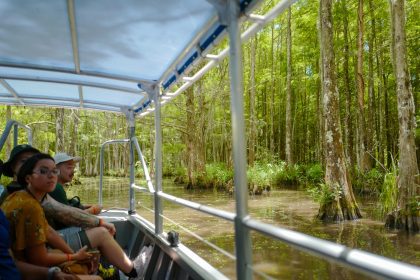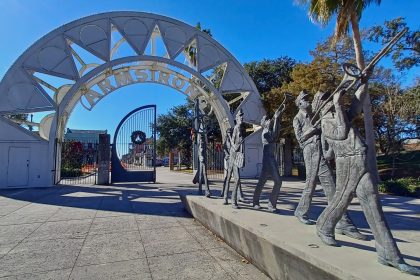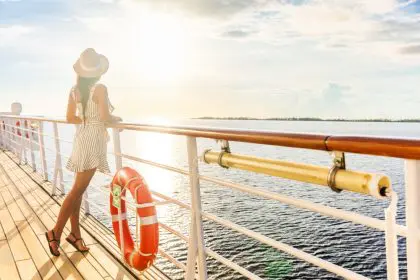New Orleans stands as one of America’s most culturally rich destinations, drawing millions of visitors annually to experience its legendary music, distinctive cuisine, and historic charm. However, the city’s tourism industry faces growing pressure to balance economic growth with environmental stewardship and community preservation. Forward-thinking entrepreneurs are responding with innovative sustainable tourism ventures that protect the city’s unique character while creating meaningful experiences for travelers.
The movement toward responsible travel has gained significant momentum in the Crescent City, where rising sea levels, increasing storm intensity, and overtourism concerns have made sustainability more than just a trend. These challenges have sparked creative solutions that demonstrate how tourism can support rather than strain local communities and ecosystems.
1. Wetland restoration tour experiences
The Louisiana coastline loses approximately 16 square miles of land annually, making wetland conservation a critical environmental issue. Sustainable tour operators have developed immersive experiences that combine education with hands-on restoration activities. Visitors participate in cypress tree planting, invasive species removal, and wildlife habitat creation while learning about the region’s delicate ecosystem.
These ventures partner with local environmental organizations to ensure scientific accuracy and meaningful impact. Tour groups typically range from eight to twelve participants, maintaining small group sizes that minimize environmental disruption. The experiences often include traditional pirogue boat rides through restored marshlands, providing intimate encounters with native wildlife while supporting ongoing conservation efforts.
Revenue from these tours directly funds additional restoration projects, creating a sustainable cycle where tourism dollars contribute to environmental healing. Participants leave with deeper understanding of Louisiana’s ecological challenges and tangible evidence of their positive impact on the landscape.
2. Urban farming and culinary heritage tours
New Orleans’ renowned food culture provides the foundation for sustainable tourism ventures focused on local agriculture and culinary traditions. Urban farming initiatives have transformed vacant lots into productive growing spaces that supply restaurants while educating visitors about sustainable food systems.
These experiences combine garden tours with cooking classes featuring ingredients harvested during the visit. Participants learn about Creole and Cajun cooking techniques while understanding the environmental benefits of local food production. The ventures often incorporate composting demonstrations, rainwater harvesting systems, and organic growing methods.
Local chefs and master gardeners lead these experiences, sharing knowledge passed down through generations while adapting traditional practices for modern sustainability challenges. The tours create direct economic benefits for neighborhood farmers while reducing the carbon footprint associated with food transportation.
3. Historic building retrofit demonstration sites
The French Quarter and surrounding historic neighborhoods offer unique opportunities to showcase sustainable building practices within heritage preservation frameworks. Innovative ventures have transformed select historic properties into living laboratories that demonstrate energy efficiency improvements while maintaining architectural authenticity.
These sites offer guided tours that highlight solar panel integration, rainwater collection systems, and energy-efficient HVAC solutions designed specifically for historic structures. Visitors learn about the challenges of balancing preservation requirements with environmental goals while seeing practical solutions in action.
The ventures often include workshops on traditional building techniques using sustainable materials, connecting visitors with local craftspeople who specialize in heritage construction methods. These experiences appeal to architecture enthusiasts, environmental advocates, and history buffs while supporting skilled trades that maintain the city’s architectural character.
4. Community-based music and arts collectives
New Orleans’ musical heritage provides the foundation for sustainable tourism ventures that support local artists while preserving cultural traditions. Community-based collectives have developed intimate performance spaces and educational programs that create authentic cultural exchanges between visitors and local musicians.
These ventures prioritize fair compensation for artists while maintaining small audience sizes that preserve the intimate nature of traditional New Orleans musical experiences. Programs often include instrument-making workshops, songwriting sessions, and historical context about the social and cultural forces that shaped the city’s musical landscape.
The collectives typically operate in repurposed buildings using sustainable practices such as renewable energy, waste reduction, and locally-sourced materials for renovations. Revenue supports not only performing artists but also instrument repair specialists, sound engineers, and other professionals who maintain the city’s musical ecosystem.
5. Bicycle-powered neighborhood exploration services
The city’s relatively flat terrain and compact neighborhoods make bicycle touring an ideal sustainable transportation option. Innovative ventures have developed bicycle-powered services that extend beyond traditional guided tours to include mobile food delivery, photography services, and even small-scale cargo transportation.
These businesses utilize custom-designed bicycles equipped with cargo capacity, electric assist capabilities, and weather protection systems. Tour routes incorporate dedicated bike lanes, scenic waterfront paths, and quiet residential streets that showcase neighborhood character while minimizing traffic conflicts.
The ventures often include bicycle maintenance workshops, urban cycling safety courses, and advocacy for improved cycling infrastructure. Participants learn about transportation alternatives while supporting businesses that demonstrate practical applications of human-powered mobility in urban environments.
6. Renewable energy education and demonstration centers
Louisiana’s abundant sunshine and strong coastal winds create ideal conditions for renewable energy production, making the region perfect for educational tourism focused on clean energy technologies. Demonstration centers have been established that showcase various renewable energy systems while educating visitors about implementation challenges and opportunities.
These facilities typically feature solar panel arrays, small wind turbines, and energy storage systems integrated into working buildings or outdoor installations. Interactive displays allow visitors to monitor energy production and consumption while learning about grid integration, energy efficiency, and policy frameworks that support renewable energy adoption.
Educational programs often include hands-on workshops where participants build small solar devices, calculate energy payback periods, and explore career opportunities in the growing clean energy sector. The centers frequently host school groups, providing STEM education opportunities while inspiring the next generation of environmental leaders.
7. Sustainable seafood and aquaculture experiences
Louisiana’s coastal location and fishing heritage provide the foundation for sustainable tourism ventures focused on responsible seafood production and consumption. These experiences combine traditional fishing methods with modern aquaculture techniques that minimize environmental impact while supporting fishing communities.
Visitors participate in oyster reef restoration projects, learn about sustainable shrimp farming practices, and experience traditional fishing methods that have been adapted for current environmental conditions. Programs often include seafood preparation classes that emphasize seasonal availability, proper handling techniques, and recipes that maximize the use of whole fish.
The ventures typically partner with local fishing families and seafood processors to ensure authentic experiences while providing direct economic benefits to working waterfront communities. Educational components address challenges such as saltwater intrusion, habitat loss, and climate change impacts on traditional fishing practices.
8. Green transportation innovation showcases
New Orleans serves as a testing ground for innovative transportation solutions that address urban mobility challenges while reducing environmental impact. Sustainable tourism ventures have developed around electric vehicle sharing programs, water taxi services, and multi-modal transportation demonstrations.
These experiences allow visitors to test emerging transportation technologies while learning about urban planning principles that support sustainable mobility. Programs often include electric scooter tours, solar-powered boat rides, and walking tours that highlight transportation infrastructure improvements.
The ventures frequently collaborate with technology companies, urban planners, and transportation agencies to provide real-world testing environments for new mobility solutions. Visitors gain exposure to cutting-edge transportation options while contributing to research and development efforts that could influence urban transportation planning nationwide.
9. Circular economy and waste reduction initiatives
The city’s vibrant festival culture and tourism industry generate significant waste streams, creating opportunities for sustainable ventures focused on circular economy principles. These businesses have developed innovative approaches to waste reduction, material recovery, and resource conservation that visitors can observe and participate in.
Experiences include behind-the-scenes tours of composting facilities, plastic recycling operations, and creative reuse workshops that transform discarded materials into functional or artistic objects. Visitors learn about waste stream analysis, material recovery techniques, and business models that profit from waste reduction.
These ventures often incorporate volunteer opportunities where tourists can contribute labor to sorting, processing, or distribution activities while learning about waste management challenges and solutions. The experiences demonstrate how individual actions contribute to larger environmental goals while creating economic opportunities.
10. Climate resilience and adaptation education centers
Rising sea levels and increasing storm intensity make climate adaptation a critical issue for New Orleans, creating opportunities for educational tourism focused on resilience planning and implementation. These centers showcase flood management systems, hurricane preparedness strategies, and community adaptation initiatives.
Visitors experience flood simulation exercises, learn about living shoreline construction techniques, and participate in emergency preparedness workshops designed for both residents and tourists. Programs often include tours of flood protection infrastructure, green infrastructure demonstrations, and community garden projects that provide food security during disaster recovery periods.
The centers frequently host conferences, workshops, and research presentations that bring together experts from around the world to share adaptation strategies. Visitors gain exposure to cutting-edge resilience planning while supporting research and education efforts that benefit vulnerable communities globally.
These sustainable tourism ventures represent a fundamental shift in how New Orleans approaches visitor experiences, prioritizing long-term community and environmental health while maintaining the authentic cultural character that draws millions of visitors annually. Each venture demonstrates that responsible tourism can create economic opportunities while addressing pressing environmental and social challenges, establishing a model that other destinations can adapt to their unique circumstances.












